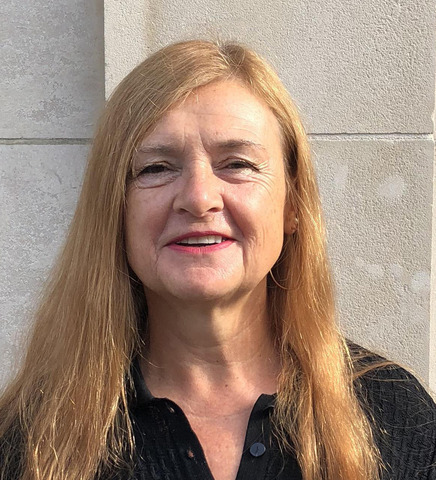As world leaders assemble in Glasgow, I was reminded that I recently attended the Greater Brighton Economic Board’s virtual climate summit.
It highlighted local projects already under way and pointed the way towards further local and national action ahead of COP26.
We heard about the need to reduce our CO2 consumption from around 8kg to 3kg per head to stay within reach of our net zero targets.
The main emissions in the city arise from flying, food, drink and cars, but there’s also important work to be done around heating – insulation and retrofitting.
You can find a very useful CO2 consumption map which goes into detail for each local ward here www.carbon.place.
We saw some great work being done by the Sussex Bay Initiative, combining natural habitat restoration with fishing and eco-tourism and I look forward to hearing more at a webinar next month.
We heard that saltmarshes, seagrass and kelp forests are amazing solutions to carbon storage and sequestration.
The Sussex kelp restoration project has achieved a near-shore trawling ban of between 1km and 4km from our coasts. Early results from this project, aimed at recreating our incredible kelp forests with their multiple habitats, are encouraging.
We heard about green hydrogen initiatives from engineers at Ricardo – and the efforts of Shoreham port to covert to it. Just one converted HGV would reduce carbon consumption by 39 tonnes a year!
Brighton and Hove Buses emphasised the need for more priority bus lanes to encourage more passengers on to buses.
We agree, but I and Labour colleagues would add that reducing fares would also help with this endeavour, which is critical for local and regional active travel plans.
They are looking at using hydrogen fuel cell technology to add to their part-zero emission buses already on the road across the city.
Other cities, including Portland, in the American state of Oregon, and Lahti, in Finland, set out their green initiatives.
An interesting point made by Portland was that green energy schemes, be they electric transport or retrofits to public housing, disproportionally benefit disadvantaged households as they reduce energy costs significantly.
In summary, our city needs significantly more green and blue investment over the next few years.
Councillor Carmen Appich is the joint Labour opposition leader on Brighton and Hove City Council.










Masses of congestion caused by ill thought out ‘improvements’ add considerably.
Why would people give up their cars when public transport in Brighton is expensive, slow, uncomfortable and mostly inconvenient.
All very interesting, but how much will these actions reduce the carbon emissions of the city to meet your PROMISE to make the city net-zero by 2030.
Looking at the latest plan there are a lot of details of where the council thinks emission are coming from. Key was that the council itself is only 1.7% of emissions but the plans don’t seem to deal with major issues such as heating of domestic buildings, nor quantify what savings will be made.
Many of the schemes are driven by government initiatives such as replacing gas boilers rather than any actions by the council. How much can council actions and spending really reduce the city’s emissions? It’s great suggesting putting a solar panels on buildings, but wouldn’t it be better to just encourage residents to switch to sustainable energy suppliers?
What actions do you want residents, visitors, and businesses to take and what are you, the council, doing to encourage these to take place (other than putting in cycle lanes and blocking junctions to traffic)?
As we are now 3 years further on since the council declared a climate emergency, and so almost 25% of the way to 2030 a statements of what you have achieved so far would not go amiss, instead of broad statements of actions and the council producing ever more infographics.
See https://www.brighton-hove.gov.uk/full-carbon-neutral-2030-programme
I can’t see the current-run BHCC keeping to any targets. There is hardly any evidence to suggest this so far, when they’re concentrating on messy bin strikes and planning to spend more money on bus lanes etc. Bus fares are expensive (as are train fares), electric vehicles are expensive to purchase (and near impossible to power up from your own home (for the majority flat dwellers) and minimal street power-stations always parked on by fuelled vehicles (and No action taken again by parking attendants). The recycling is poor and not sufficiently organised or encouraged due to regular over flowing bins. Streets covered in rotting leaves (which produce greenhouse gas!). Food waste from local outlets and suppliers goes unregulated. No action taken again fly tippers. All these contribute towards killing our climate. Finally, rotting trees falling in high winds (the recent Hove tree was rotten at the base. The base was hidden by weeds!) Sorry I’m taking all these assurances with a pinch of salt.
Then Phelim takes a short haul flight to Glasgow while lecturing us all.
Plus the only Greenie MP, Mrs Spock, is spotted also at the COP Junket without a mask, chatting away to everyone.
Yet more from the “do as I say” Greenies.
We need adults back in the council please.